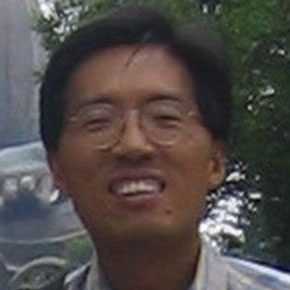
Dinoflagellate Biology
Couplings between cellulose-cell wall, membrane growth, and karyo-genomic architecture
All compartments in a cell are connected; all living organisms solve life problems with common and with different resolutions. The understandings of biological processes are enlightened with observations in challenge-response, mutant-phenotypes, functional networks, and evolutionary derived understandings. Biology is beholding a revolution through post-omics and post-functional screenings (yeast), with CRISPR-related technology taking on prior genetically intractable systems. Understanding holistic rationale that behold polysaccharide deposition-vesicular transport,7,8,12, membrane-lipid axis5, and genome physical karyotypes89.11 0, encompassing the essence of growth concordance, will make a difference in basic sciences and technology.
Corals are obligative symbionts with dinoflagellates of the order Symbiodinaceae. Their photosynthesis, which form the basis of coral reef bioenergy input, is conducted with ‘minicircles’ encoded essential chloroplast genes2,10. Coral bleaching is about unviable symbiotic relationship between them, likely attributed to differential growth concordance initiated with composite factors including seawater warming, increasing UV irradiation, pollution, and extreme weather.
https://www.aims.gov.au/research-topics/environmental-issues/coral-bleaching/what-coral-bleaching
These are in turn caused by climate change4 and from anthropogenic activities, and we should be proactive in protecting them. Some of the best coral reefs are in Asia Pacific https://www.apcrs2023.org/
Our research posited us as one of the leading groups in cell biology dinoflagellates, including those of both free-living and symbiotic forms. Yeasts and bacteria serve as our comparative research model systems. The permanent dinoflagellate nuclear envelope, and the availability of non-invasive genome cycle synchronization, in addition to large cell size (a chromosome can be larger than a yeast cell), will make a difference in biochemical truthing with molecular genetics. In addition to being a key plankton group, many dinoflagellates are harmful algal bloom agents, and the coral-zooxanthellae; symbiotic relationship termination is manifested in the ongoing coral bleaching. Their bioluminescence lightened many dark nights, often coined with the phase ‘blue tears’ in major tourist attraction. The group has some of the highest cellular concentrations of DMS/DMSP, the biogeochemical sulphur compounds. Dinoflagellate cell wall3 and genomes likely retain clues to survive with elevating UVc4 and increasing global temperatures. Dinoflagellates are sister group to the apicomplexans (major human parasites including malaria) and the ciliates, models for discovery of telomere and RNA-mediated genome processing.
It is also of strategic timing for molecular dinoflagellate cell biological investigations, encompassing coral bleaching and harmful algal blooms. The ecologically profound group, which was prior genetically intractable, with long-read sequencing and transgenic technology. We also isolated many novel free-living species, including some with highest lipid levels, and one free-living species with the lowest genome size. The now genomic tractable with transformable dinoflagellate models will posit dinoflagellates in the forefronts of post-genomic biotechnology and synthetic biology, given the large repertoire of dinoflagellate bioactive and for omega-3 DHA production2.
Red tides are not only cell proliferation but life-cycle transitions
https://www2.whoi.edu/site/andersonlab/
Bioluminescence is not only for tourists,
Interested students and postdoctoral collaborators are referred to potential changes in the URLs posted in some of my prior publications and art exhibitions.
My biosketch can be found in here. Detailed research interests can be found in the following links here.
Selected references (out of ~70)
in submission
Lam, W.T. et al., Symbiodinaceae exhibit high sensitivity to low dose UVc irradiation.
Kowk, et al., The dinoflagellate inner chromosomal compartment.
Kwok, A.c.M. et al., Point mutation in the dinoflagellate histone-like protein HCC3 led to chromosome decompaction in vivo.
Kwok, A.C.M., Bennet,M, et al., A new form of genome replication-segregtaion.
Yuan,W. Chan,W.S. et al., Cellulosic Thecal Plates are composed of dfferent crystalline domains.
Chan,W.S. et al., Cesa expression exhibited feedback with cellulose synthesis inhibition leading to cell cycle arrest.
Kwok, A.C.M. et al., Deposition of coccoidal carbonate shell in the calcareous dinoflagellate Thoracosphaera heimii.
Tertiary level Science Communications: conecting science compartments:
ScienceArt Commune 1: Wong, J.T.Y., Whirling with Waters. Art and Science 2024, 8,
https://www.openscience.fr/ScienceArt-Commune-1-Whirling-with-Waters
ScienceArt Commune 2. Wong, J.T.Y. On Reception and Engagement